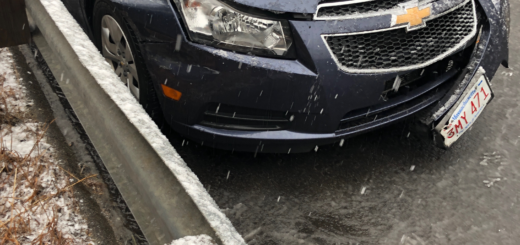Cassie Fambro adapting to COVID-19 reporting methods
by Paul Lambert
Cassie Fambro is on her way to record a live shot for the nightly news. She’s already put makeup on, typed out a script, and set up her camera.
She walks into the living room, sits in her chair, and gets to work.
Fambro is a news reporter in Birmingham, Alabama at WBRC, the city’s FOX affiliate.
Fambro is still relatively new at the station, as she moved from Mobile, around three-and-a-half hours to the south, last April. She’s had to meet a brand-new staff, learn a city, and report stories, all without the normal acclimation process she’s had everywhere else she’s worked.
The trip to the studio, one that used to be an everyday occurrence, is one Fambro has only made about a dozen times in the ten months she’s worked at the station. There are people she works with that she still hasn’t met in person.
The on-site part of the job that isn’t there so much anymore is something that Fambro misses every day.
“I like to step outside of my apartment because it feels more real to me,” Fambro says. “Being live inside of your apartment feels fake in a very strange way.”
“I’m really excited to be able to get back into a newsroom once we are vaccinated. News is a team sport and it can get quite lonely.”

Photo: Cassie Fambro
Until the worst of the pandemic is past, however, this is Fambro’s reality.
There’s changes to the way Fambro does her reporting now. Virtual interviews have become commonplace. Masks are required when reporting on the street. Reporters and photographers no longer travel to the site of the story together.
Some of these changes will carry on into a post-COVID world, perhaps even for the better.
“Whether it’s using FaceTime or Zoom, being able to interview people who hold state offices or other designations who we can’t physically go meet with the camera has been invaluable,” Fambro says. “I can’t see us going back to just reading statements from a screen.”
Even after an extremely tough year, Fambro is reminded of the toll the pandemic has taken on everyone. It’s put things into perspective for her.
“Everything in the past year has doubled down the importance of remembering that numbers represent people,” Fambro said. “We are people just like the people we cover, we are their neighbors. We always need to remember that.”

